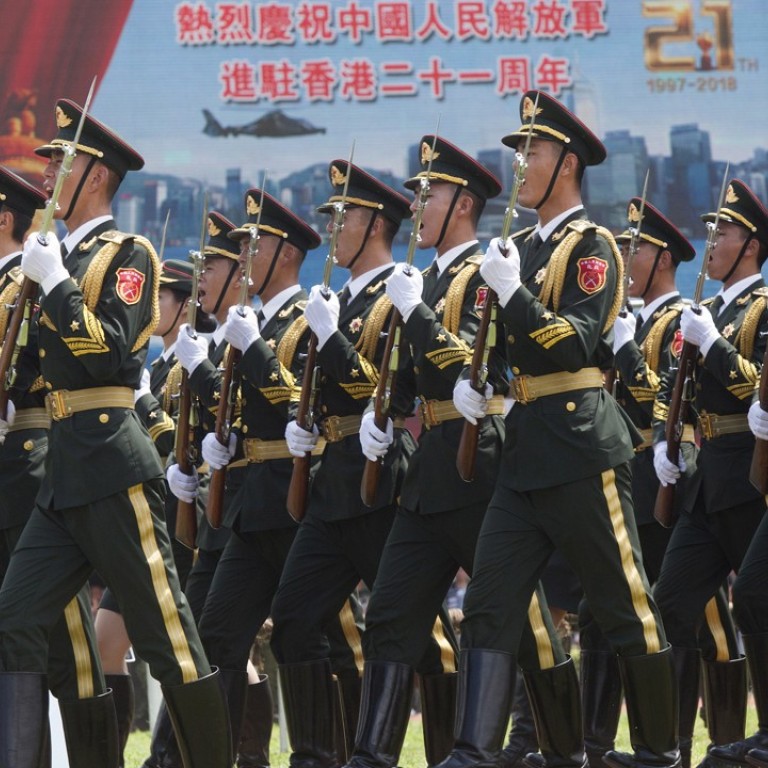
Time not yet right for PLA to change its Hong Kong policy on uniforms
Good discipline and a low profile by the military may have impressed the public, but issues have to be considered if soldiers are able to leave barracks
It is not unusual for citizens to come across uniformed military officers on the mainland and in some foreign countries, but what is common elsewhere may still raise eyebrows in our city. Thanks to the restraints of the Hong Kong garrison of the People’s Liberation Army over the past 20 years, its presence remains largely invisible, and with good reason. The low profile has helped improve public perception of the PLA and increased confidence in the “one country, two systems” formula.
Recently, questions have been raised as to whether local PLA officers should be allowed to wear uniforms in public after two million servicemen and women on the mainland from May were allowed to do so in a move to enhance public image and respect. The force here is understood to be considering the issue, as many soldiers have expressed hope for a change. It may also help boost the morale of the force, according to a source close to the PLA.
Admittedly, the thought of uniformed soldiers freely roaming the city streets may still cause unease among Hongkongers, even though the military crackdown on the Tiananmen pro-democracy movement was nearly 30 years ago. Given the sensitivity involved and the prevailing political tension between Hong Kong and the mainland, it may not yet be time for a change.
Such a move may also give rise to practical issues. For instance, the Hong Kong police and other local disciplined officers cannot wear uniform when they are off-duty. Will uniformed soldiers in public give rise to a misunderstanding of their duties? Will it also lead to perceived privileges? If individual off-duty officers run into disputes or lawsuits, will he or she be handled internally or according to local law? Observers say the PLA may also need to keep an eye on officers’ conduct in public, raising broader legal and political questions if the jurisdiction of the military police is to expand from within the barracks to the wider city.
The officers stationed here are confined to the barracks most of the time and strictly adhere to the garrison law. The good discipline and low profile have helped shore up public satisfaction with their performance, as consistently reflected in public opinion polls. But it also means limited interaction with the local people.
There are occasions for officers to join organised events in uniforms, such as university visits, charity runs and blood donations. But if the PLA open days and student summer camps are any guide, the public is seemingly eager to know more about the garrison. It would be good if more engagements of this type could be arranged to foster a better understanding of officers’ duties and their way of life.
There is no urgency for a change. The way that the local garrison has been operating over the past two decades has served the city well.

